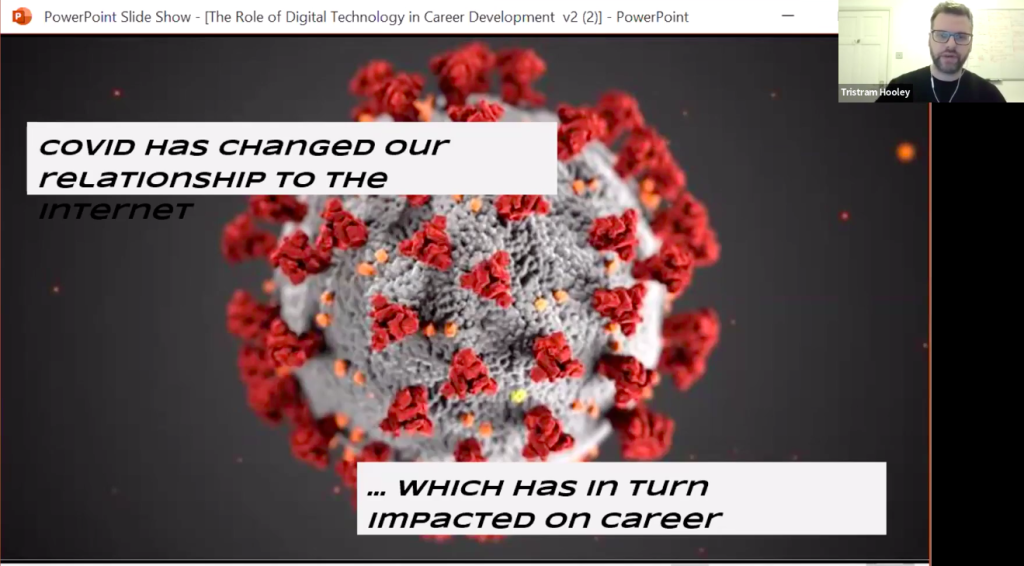The following is a conversation between Raza Abbas and Tristram Hooley about takeaways from CERIC’s Cannexus22 conference.
Interested in presenting at CERIC’s hybrid Cannexus23? The call for presenters is now open! Visit cannexus.ceric.ca for details and submit your proposal by June 17, 2022.
Abbas: Enlighten us with your virtual experience at Cannexus22 – Canada’s Career Development Conference. Which sessions were you involved in?
Hooley: If I’m being honest, nothing beats coming together in person in the chilly cold of Ottawa, but it was still great to have the chance to link up with my friends from Canada and the rest of the world.
I was involved in a couple of sessions. In the first, Tom Staunton and I talked about the impact of digital technologies on career development. We argued that digital technologies have the potential to be transformative, but that this still leaves us with some big questions about the direction we want that transformation to go. In essence, we were trying to argue against the idea that technology is destiny and to argue that we need to think carefully as a field and as a society about how we want to use technology to shape our practice and our careers.
In the second session led by Sareena Hopkins, we looked at how we can try to engage policy-makers in our work. As one of an international panel, it was fascinating to hear about the experiences all over the world. In general, the critical thing seemed to be to try to listen to what policy-makers want. Once you understand their issues and agendas you can try to fit in with them. While evidence matters, it isn’t everything; we also need to understand the way in which government works and try to emulate it as an executing model.
One of the great things about Cannexus is the incredible diversity. I can’t claim to have participated in even a small fraction of all of the sessions that were on, but it was great to see people like Norm Amundson, Tanis Goddard and Bill Borgen presenting. It was a real who’s who of Canadian career development.

Abbas: From the Cannexus conference, which areas of social justice are emerging and how can career services professionals collaborate and have continued dialogues on social justice?
Hooley: In terms of social justice, it was good to see discussion about the provision of career development for adults, workshops on anti-racist approaches, career development for indigenous communities and using career development to support positive mental health. It is really clear that career development is no longer just about “getting to the top,” it is also about thinking carefully about the relationship between the individual and society and about doing everything you can to make society fairer.
I really hope that this trajectory around career development and social justice continues and that we see it much more strongly at future Cannexus as well as at other conferences across the world.
Cannexus is still the biggest career development conference that I’ve ever been to and so I see it as setting the standard for the rest of the world. Hopefully, in 2023, I’ll be able to make it to Ottawa and have the chance to talk about all of these issues in person again.





